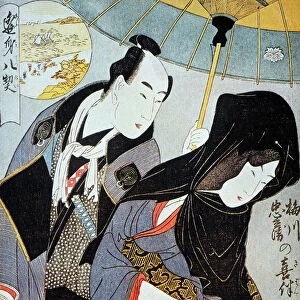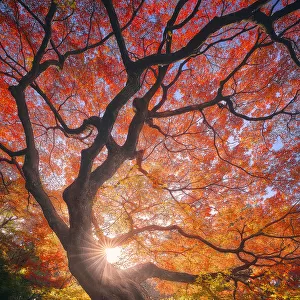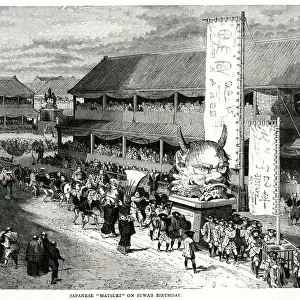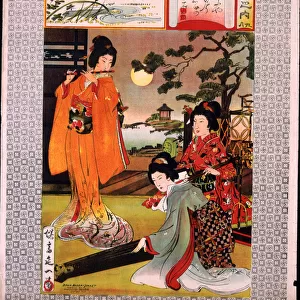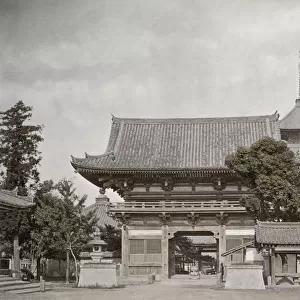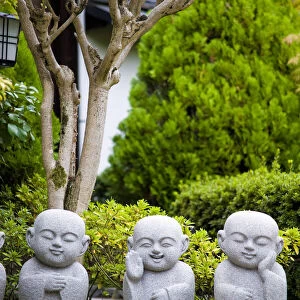Home > Mary Evans Prints Online > New Images August 2021
Japanese supreme deities
![]()

Wall Art and Photo Gifts from Mary Evans Picture Library
Japanese supreme deities
Japanese supreme deities, including four-armed god on a pillar on a turtle, serpent god, gods with dog and deer heads, etc. Handcoloured copperplate engraving by Andrea Bernieri from Giulio Ferrrarios Costumes Antique and Modern of All Peoples (Il Costume Antico e Moderno di Tutti i Popoli), Florence, 1842
Mary Evans Picture Library makes available wonderful images created for people to enjoy over the centuries
Media ID 23173004
© Florilegius/Mary Evans
Antique Deer Deities Ferrrario Giulio Gods Halo Kami Pagan Peoples Pillar Serpent Turtle
EDITORS COMMENTS
This hand-colored copperplate engraving by Andrea Bernieri, titled "Japanese Supreme Deities," is an intriguing glimpse into the rich and complex pantheon of Japanese mythology as depicted in Giulio Ferrrario's "Costumes Antique and Modern of All Peoples" published in Florence in 1842. The image showcases a vibrant array of Japanese deities, each with distinct characteristics and symbols. At the center, the four-armed god stands triumphantly atop a turtle, his halo radiating divine light. The turtle, a common symbol of longevity and support in Japanese mythology, holds the god steady as he wields various attributes in his hands. This deity is likely Amida Nyorai, the Buddha of Infinite Light and Infinite Life, who is often depicted with four arms and a halo. To the left, a serpent god coils around a pillar, its eyes fixed on the viewer with a fierce gaze. The serpent, a powerful and ancient symbol of renewal and transformation, represents the Shinto deity, Ryujin, the Dragon King of the Sea. To the right, gods with dog and deer heads are depicted. These are the Shinto deities, Inari Okami and Susanoo-no-Mikoto, respectively. Inari Okami is the god of rice, agriculture, and commerce, while Susanoo-no-Mikoto is the storm god and the protector of the rice fields. The intricate details and vivid colors of this engraving provide a captivating window into the rich and diverse world of Japanese mythology, offering a glimpse into the beliefs and traditions that shaped the culture and history of Japan.
MADE IN AUSTRALIA
Safe Shipping with 30 Day Money Back Guarantee
FREE PERSONALISATION*
We are proud to offer a range of customisation features including Personalised Captions, Color Filters and Picture Zoom Tools
SECURE PAYMENTS
We happily accept a wide range of payment options so you can pay for the things you need in the way that is most convenient for you
* Options may vary by product and licensing agreement. Zoomed Pictures can be adjusted in the Cart.




